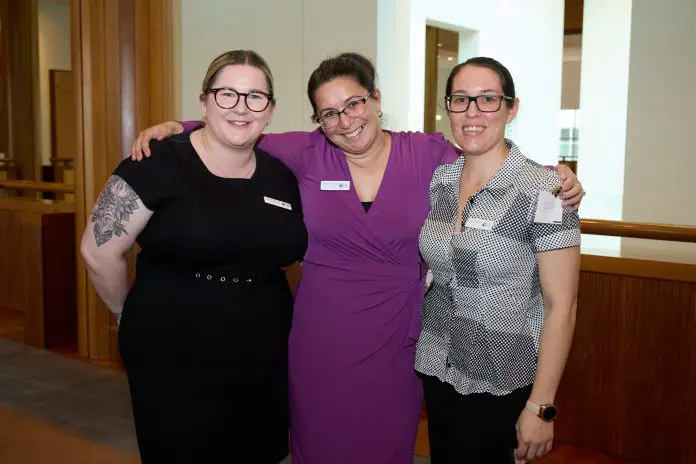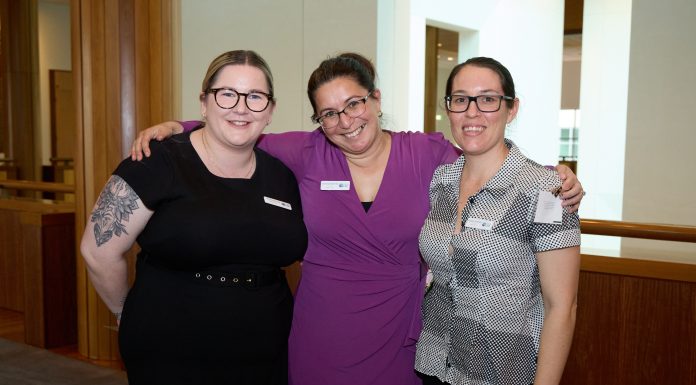For the past two years, Angela Graham has played a pivotal role in Rural LAP’s aged care program alongside a supportive team including Vanessa Bonney, Rhiannon Craig and Mena Biscotti. The Rural LAP aged care team spend their days supporting locum healthcare workers across rural and remote Australia. As program officers responsible for aged care placements across Australia, the team is deeply involved in ensuring locums receive the assistance they need from start to finish.
Comprehensive support for locums
The Rural LAP Aged Care team provide end-to-end support for locums, ensuring a seamless experience from placement to completion. Each program officer is assigned a specific state, offering personalised guidance and assistance. Travel arrangements, including flights, accommodation and hire cars, are handled by a dedicated travel coordinator.
Additionally, each program officer remains a 24/7 point of contact, ready to assist locums with any issues that they may encounter whilst on placement.
While most placements run smoothly, challenges can arise. Angela recalls a situation where a locum experienced a family bereavement. “We worked closely with our travel team to get them home as soon as possible,” she says. In rare cases, a placement might not be the right fit for the locum or the service, and Rural LAP ensures a swift transition for both.
Preparing locums for Indigenous community placements
Most locums have particularly positive experiences working in Indigenous communities, such as Linda, who recently requested to return to Oak Valley in South Australia. Read Inside Ageing’s interview with Linda on the completion of her first placement at Oak Valley.
To ensure success in these placements, locums receive cultural sensitivity advice and background information on the community they will be serving.
“Working in Indigenous communities can be confronting for some, but Rural LAP provides comprehensive information on cultural expectations and ensures that locums are well prepared for their placements,” Angela explains. Rural LAP supports placements in communities such as those near Katherine (NT), Aurukun (QLD), Ceduna (SA), Warburton (WA), and others.
The ideal rural locum
Angela has placed and supported locums on hundreds of aged care placements across the year and each month, the aged care team place around 38 locums, who support rural and remote services/outlets throughout Australia.
“When I started, we had around 50 aged care credentialed registered nurses (RNs). Now, we have over 100, along with enrolled nurses (ENs), facility managers, and care workers,” Angela added. Locums play a vital role in backfilling aged care positions, covering CPD and annual leave and vacant positions where facilities are recruiting for permanent staff.
To qualify, RNs must have at least three years of clinical experience and a minimum of 250 hours of aged care work in the past 12 months. Credentialing involves a thorough vetting process ensuring that locums have the required experience and certifications for placement, this process can vary depending on the job and facility requirements.
“The Rural LAP RNs have always been highly skilled and transitioned smoothly into our clinical and care teams. The clinical teams thoroughly enjoy working with and having the Rural LAP RNs onboard.”
Proserpine Nursing Home
A cost-effective solution for aged care providers
For aged care providers, Rural LAP offers a cost-effective solution to backfilling positions. Facilities using the Rural LAP service only need to cover staff wages, superannuation and payroll tax, while Rural LAP covers the cost of travel and incentives.
The locum lifestyle
Many professionals embrace the “locum lifestyle,” travelling to diverse locations while making a meaningful impact. Locums have the flexibility to choose their placements from several options, allowing them to explore remote areas or stay closer to major towns if they desire.
Locums considering bringing their partners on longer placements (up to 90 days) can do so, but they must cover associated costs and obtain approval from their program manager and the placement facility. Short-term placements (2-3 weeks) typically do not accommodate partners, although it is still possible.
Advice for prospective Locums
Angela emphasises the importance of preparation. “Ask as many questions as possible—about staffing ratios, available support, and expectations—so you can hit the ground running.”
By ensuring locums are informed and prepared, Rural LAP continues to support aged care services/outlets while offering healthcare professionals an enriching and fulfilling career path in rural and remote Australia.
Interested?








